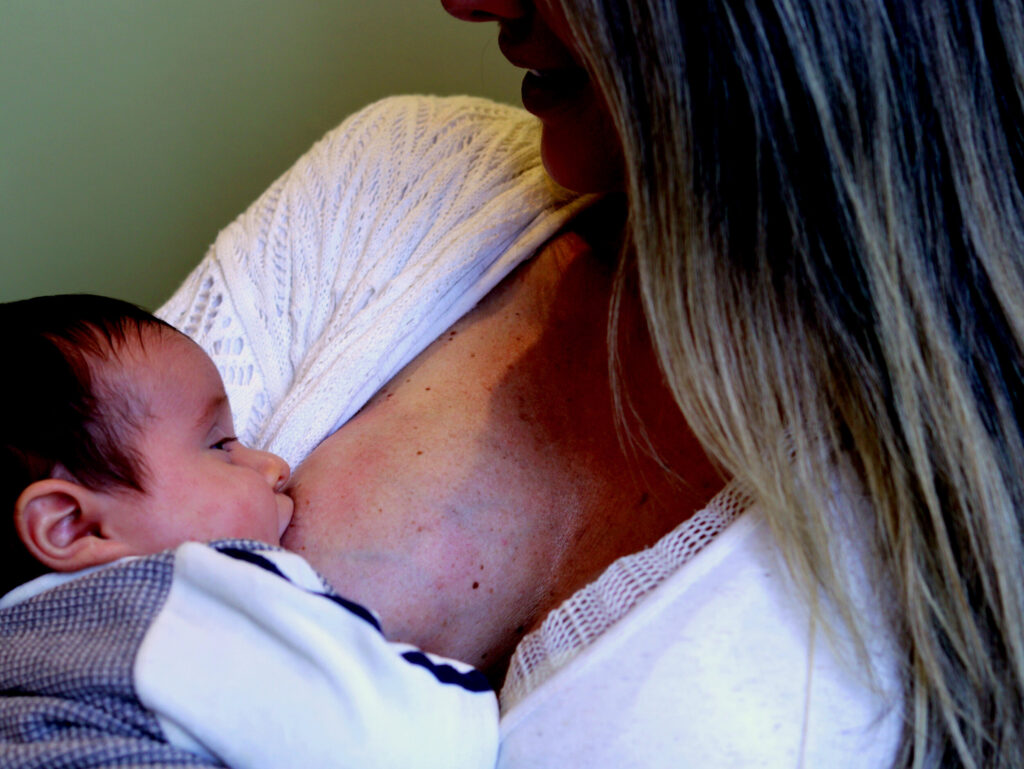
Breasts grow and change as part of your body’s preparation to feed your baby. This is a part of the reproductive cycle for women. If you have not noticed any changes with your breasts – such as an increase in size – over the course of pregnancy and birth, then discuss that with your health care team. This may be a risk factor for milk production problems. Breasts usually get larger during pregnancy, and after birth, they produce colostrum and then milk. Women’s bodies are amazing, but problems with breasts and breastfeeding can and do occur.
Hormones will signal your body to begin milk production. For the first few days after birth (and sometimes before delivery), you may notice a thick, yellowish substance that can be expressed from your breasts. This is called colostrum. It is usually on the second or third day that your mature milk will come in. The baby feeding section outlines information about infant feeding. As long as milk is being removed from your breasts, they will keep producing it. When the milk is not removed through breastfeeding or expressing, milk production will decrease and eventually stop.
In the first few days after birth, your nipples will be extra sensitive. That’s caused, in part, by the rapid changes in hormones that comes with giving birth. That extra sensitivity provides feedback on how your baby is positioned – if you’re continuing to feel discomfort 20-30 seconds after your baby attaches, that’s a clue to adjust your baby’s position until it’s comfortable for both of you.
You may also notice belly pain, like menstrual cramps, when your baby is suckling. These are called after pains, when the hormones that release milk cause your uterus to cramp, helping slow down bleeding. Ibuprofen, 600 mg up to four times a day, can help you cope with the cramping sensation.
Mothers who are separated from their babies, including infants who are hospitalized, and want to give their babies human milk can begin pumping to build their milk supply. Most often this milk can still be given to the baby. The information in this section can also help women who largely pump their milk for their babies.
When to seek help
If you experience pain, low milk supply or other symptoms, contact your health care team.
A doctor, midwife, nurse, a lactation consultant, or peer counselor may be most helpful for further assistance. A lactation professional can offer guidance to help with infant positioning, latch, to better understand the source of any discomforts, and outline treatment possibilities. Even if everything with infant feeding is going well, a lactation professional can help you and your baby get off to a good start. Community parenting groups, health departments, clinics, and peers such as other mothers are additional resources that may be available to you.
A lactation appointment might include questions about your breastfeeding history, your current feeding goals, patterns of breastfeeding/expressing, birth and postpartum experiences, the ways you are feeling pain, examination of your baby, a breast exam, and an observed breastfeeding/expressing session.
Here is a great resource about the basics of breast massage and hand expression.










